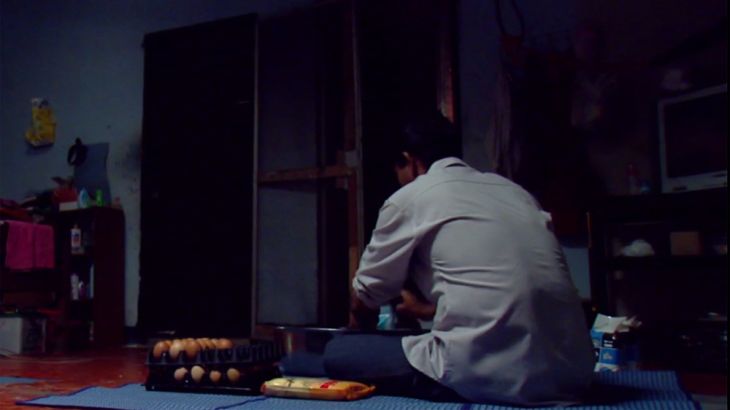A Rohingya refugee’s struggle in Thailand
In the mountainous, multi-cultural city of Chiang Mai, we meet a migrant who fled Myanmar 20 years ago.

For decades, Rohingya Muslims have been fleeing Myanmar, a mainly Buddhist country where they are denied basic rights, but in recent years the exodus of refugees has surged.
Over the past few weeks, numerous boatloads of refugees have tried to enter neighbouring Thailand. For those who have managed to settle there life can still be a struggle.
Keep reading
list of 4 itemsPalestinian Prisoner’s Day: How many are still in Israeli detention?
‘Mama we’re dying’: Only able to hear her kids in Gaza in their final days
Europe pledges to boost aid to Sudan on unwelcome war anniversary
In the mountainous, northern city of Chiang Mai, we met a Rohingya refugee who fled Myanmar 20 years ago.
Muhammad runs a small roti stand and makes a meagre $10 a day to feed his family of five. Like many of his fellow Rohingya, he left because of persecution.
Muhammad left because he attacked undercover soldiers. They were beating his father before they took him to prison. Years later, the incident is still raw.
“I’ve never seen my dad again after he came out of prison,” he told Al Jazeera.
“I fled to Bangladesh and then India. I came back to Myanmar and then ended up in Thailand.”
Although Muhammad struggles to make ends meet, he is better off than many of the recent arrivals.
Kessarin Tiawsakul, a representative of the Thai National Human Rights Committee, told Al Jazeera that while Rohingya like Muhammad who arrived in Thailand decades ago can “probably work with migrant permits”, the ones who have recently arrived will not have the necessary documents.
Chiang Mai has a centuries-long history of Buddhism and, thanks to its location along ancient trade routes, is known for being multi-cultural. However, many Buddhists from Myanmar live or pass through the city and the Rohingya who have arrived recently, fearful of persecution, hide their identities.
Pramoj Muhammad, a local imam at the 100-year-old Chang Clan mosque in Chiang Mai, explained that because of this even he is unable to tell where his growing congregation is from.
“We can’t really identify if they are Rohingya. They have told us that they not Rohingya, but Burmese Muslims. Some of them would say they have Bengali blood.”
Muhammad says that he can’t go back, but encourages the Rohingya still in Myanmar to stay on.
“They should stay and fight, not with guns, but fight with law and prove that we belong to that country according to our history. We are citizens of that country.”